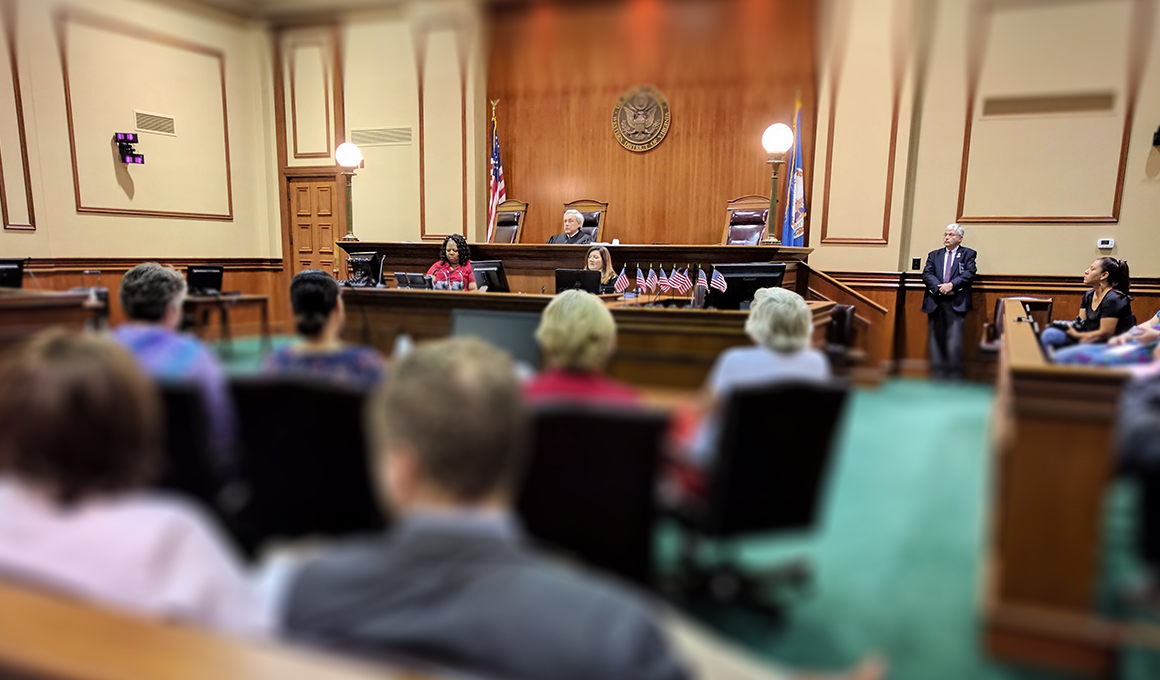The Power of Visuals in Trial Presentations for a Winning Debate
The assimilation of visuals in trial discussions has arised as an essential aspect in successfully connecting intricate arguments to jurors. By making use of different kinds of aesthetic aids-- be it diagrams, pictures, or computer animations-- lawyers can boost understanding and retention, inevitably shaping the court's understanding of the instance. This approach not just makes clear detailed stories but likewise establishes a psychological resonance that can influence decision-making. As we explore the subtleties of this strategy, it becomes necessary to think about exactly how particular sorts of visuals can make a significant difference in trial end results. What functional approaches might attorneys utilize to maximize this possibility?
Relevance of Visuals in Trials
In many lawful setups, visuals play a crucial duty in boosting the performance of test discussions. The integration of aesthetic aspects can significantly affect jurors' understanding and retention of intricate information, consequently forming their understandings and choices. Visuals, such as charts, representations, and photos, can simplify complex stories, making them extra obtainable and engaging.
Furthermore, the human brain processes aesthetic details much more efficiently than text, which highlights the importance of including visuals into legal debates. By converting dense legal principles right into aesthetic formats, attorneys can promote clearer interaction, ensuring that bottom lines are not ignored during trials.
Furthermore, visuals serve to engage jurors on a psychological level, cultivating a connection to the instance that words alone may fall short to attain. The critical use of visuals can evoke empathy, triggering jurors to consider the human aspects of the case.
Ultimately, the value of visuals in trials hinges on their ability to enhance clarity, improve juror involvement, and enhance the story existing. This potent mix is necessary for crafting convincing debates that reverberate with jurors and influence the result of legal proceedings.
Types of Visuals to Use
Reliable trial discussions can substantially take advantage of a range of visual tools that deal with various elements of the case. trial presentations. Utilizing layouts and graphes can properly damage down complex information, making it extra absorbable for jurors. Flowcharts can highlight the sequence of events, while bar charts might succinctly compare relevant data points.

Animations and simulations can additionally play a crucial role, especially in instances including technical information or elaborate circumstances. These visuals can dynamically represent processes or actions, offering clearness and involvement that fixed images may not accomplish.
In addition, infographics incorporate message and visuals to summarize necessary details effectively. They can present timelines, data, and substantial situation factors in an aesthetically appealing way, making it less complicated for jurors to comply with the debate.
Enhancing Comprehension and Retention

Enhancing understanding and retention during test presentations is critical for guaranteeing that jurors realize the essential elements of a situation. Visual help work as effective devices in this respect, equating intricate information into easily absorbable layouts. By utilizing charts, diagrams, wikipedia reference and infographics, attorneys can streamline detailed data and highlight essential points that may otherwise be overlooked.
Studies have shown that individuals preserve info considerably much better when it exists visually. This is especially essential in a test setting, where jurors may be bewildered informative post by the quantity of proof and statement. By tactically integrating visuals, lawyers can guide jurors' interest to the most essential facets of the situation, reinforcing their understanding and memory of the product presented.

Developing Involving Presentations
Exciting jurors' interest during test presentations is crucial for conveying a compelling story. Engaging presentations leverage aesthetic aspects to produce an unforgettable experience that resonates with jurors. The calculated use graphics, animations, and video clips can elucidate intricate information, making it extra accessible and relatable.

Additionally, incorporating storytelling methods can improve involvement. Offering proof in a rational sequence that constructs sob story permits jurors to get in touch with the product on a personal level. Varying discussion styles, such as including brief video clip clips or interactive components, can additionally receive interest and interest throughout the test.
Inevitably, an appealing discussion cultivates a much more extensive understanding visit site of the case, making it possible for jurors to much better value the debates being presented and causing a much more desirable end result.
Study and Success Stories
Many instance studies highlight the considerable impact of visuals in trial presentations, showing their capability to influence juror understandings and inevitably the end results of situations. A noteworthy situation involving a personal injury insurance claim highlighted exactly how the use of a 3D animation of the crash scene made clear intricate details. Jurors reported feeling more enlightened and understanding, substantially swaying their decision for the complainant.
In one more circumstances, a business litigation instance made use of infographics to present economic data and timelines, making detailed information easily accessible. The graph made it possible for jurors to grasp the nuances of the case better than spoken descriptions alone. trial presentations. Therefore, the court returned a verdict that surpassed the client's expectations
The engaging visuals not just helped in developing uncertainty yet additionally reverberated psychologically with jurors, leading to a pardon. These success stories emphasize the need of integrating visuals into trial discussions, as they improve understanding, retention, and eventually, the convincing power of lawful arguments.
Final Thought
To conclude, the tactical consolidation of visuals in test presentations considerably improves jurors' comprehension and retention of complicated details. By making use of different sorts of visuals, lawyers can successfully make clear bottom lines and foster psychological connections with the target market. Engaging discussions, sustained by compelling study, demonstrate the profound effect that visuals can carry persuasive interaction. Eventually, the power of visuals works as a vital element in achieving desirable trial end results.